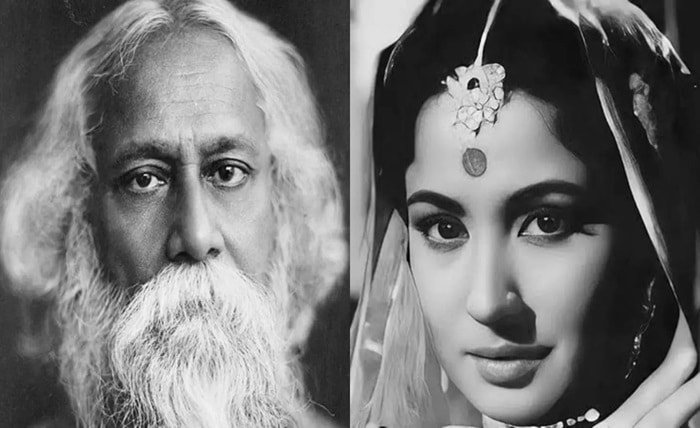Meena Kumari: The Tragic Queen of Indian Cinema

Introduction to Meena Kumari
Meena Kumari, often referred to as the “Tragedy Queen” of Indian cinema, remains one of the most celebrated and enigmatic figures in Bollywood. Born on August 1, 1933, as Mahjabeen Bano, Meena Kumari’s journey from a child artist to an iconic actress was marked by both professional success and personal tragedies. Her performances, especially in emotional and tragic roles, have immortalized her in Indian cinema. Meena Kumari’s ability to convey deep emotional pain on screen earned her a reputation as one of Bollywood’s greatest actresses, and her life off-screen mirrored much of the sadness she portrayed.
Early Life of Meena Kumari
Meena Kumari was born into a financially struggling family, with her father, Ali Baksh, working as a theater actor and musician, and her mother, Iqbal Begum, being a stage actress. To support her family, Meena Kumari started acting at the tender age of 4. This early exposure to the world of cinema laid the foundation for her future stardom. Despite her early struggles, Meena Kumari’s natural talent for acting was evident from a young age. Even in her childhood roles, she displayed a depth of emotion that would later define her career.
Meena Kumari’s Rise to Stardom
Meena Kumari’s breakthrough came with the film Baiju Bawra in 1952, where she played the role of Gauri. Her portrayal of the innocent and loving village girl won her the first-ever Filmfare Award for Best Actress in 1954. The success of this film catapulted Meena Kumari to stardom. Over the next few years, she continued to deliver stellar performances in films like Parineeta (1953) and Daera (1953). By the mid-1950s, Meena Kumari had established herself as one of Bollywood’s leading ladies, known for her beauty, grace, and emotional depth.
The “Tragedy Queen” of Indian Cinema
Meena Kumari’s title as the “Tragedy Queen” of Indian cinema was not just a reflection of the roles she played on-screen but also her personal life. Her most iconic performances in films like Sahib Bibi Aur Ghulam (1962), Pakeezah (1972), and Phool Aur Patthar (1966) showcased her unmatched ability to portray heart-wrenching sorrow. In Sahib Bibi Aur Ghulam, Meena Kumari’s role as Chhoti Bahu, a neglected wife who turns to alcohol to cope with her loneliness, became one of the most iconic tragic characters in Bollywood history. Her performance was so emotionally resonant that it left a lasting impact on Indian cinema.
The Iconic Film: Pakeezah
Pakeezah, released in 1972, is often considered the crowning jewel of Meena Kumari’s career. Directed by her estranged husband, Kamal Amrohi, the film took nearly 14 years to complete due to various production delays and personal conflicts between the two. Despite the troubled production, Pakeezah became a timeless classic. Meena Kumari’s portrayal of Sahibjaan, a courtesan longing for love and respect, remains one of her most iconic roles. Tragically, Meena Kumari passed away just weeks after the film’s release, making Pakeezah a poignant swan song for the actress.
Meena Kumari’s Personal Struggles
While Meena Kumari was achieving great success professionally, her personal life was marked by turmoil. Her marriage to filmmaker Kamal Amrohi in 1952 was one of the most talked-about relationships in Bollywood. However, the marriage was fraught with tension and ultimately ended in separation in 1964. This period of her life was marked by loneliness, heartbreak, and a growing dependence on alcohol. Meena Kumari’s battles with depression and alcoholism mirrored the sorrowful characters she often portrayed on screen, and her personal struggles contributed to her early death at the age of 39.
Meena Kumari’s Poetry and Writing
Beyond her work in cinema, Meena Kumari was also a talented poet and writer. Writing under the pseudonym Naaz, she penned deeply emotional poetry that reflected her inner turmoil and sadness. Her verses often revolved around themes of love, pain, longing, and existential despair. Meena Kumari’s poetry was a reflection of her personal struggles, offering a rare glimpse into her soul. Her collection of poems, published posthumously, further solidified her status as a multifaceted artist who could express her emotions through both acting and writing.
The Legacy of Meena Kumari
Meena Kumari’s contribution to Indian cinema goes beyond her acting prowess. She paved the way for future generations of actresses who sought to bring emotional depth to their roles. Her influence can be seen in the work of modern-day Bollywood actresses, who continue to draw inspiration from her performances. The tragic nature of Meena Kumari’s life and career has made her a cult figure, and her films remain as popular today as they were during her lifetime. Her ability to connect with audiences on an emotional level has ensured that her legacy endures.
Meena Kumari’s Influence on Modern Bollywood
Even decades after her passing, Meena Kumari’s influence is evident in Bollywood. Many contemporary actresses have cited her as a role model for portraying complex and emotionally rich characters. Meena Kumari’s ability to convey vulnerability, strength, and sorrow in equal measure set a standard for acting in Indian cinema. Films like Pakeezah and Sahib Bibi Aur Ghulam continue to be studied by aspiring actors for their nuanced performances. Meena Kumari’s tragic personal life also resonates with those who view her as a symbol of the challenges faced by women in the entertainment industry.
The Enduring Appeal of Meena Kumari’s Films
Meena Kumari’s films have stood the test of time, and her performances continue to captivate audiences today. The timeless quality of her acting, coupled with the universal themes of love, loss, and longing, has ensured that her films remain relevant. Meena Kumari’s work in Bollywood’s golden era has become a touchstone for classic Indian cinema. The fact that her films continue to be watched, studied, and appreciated speaks to the lasting impact of her talent and artistry.
Meena Kumari’s Tragic Demise
Meena Kumari’s life came to a tragic end on March 31, 1972, when she passed away due to cirrhosis of the liver, brought on by years of heavy drinking. She was only 39 years old at the time of her death. Her untimely demise shocked the nation and left a void in the world of Indian cinema. Meena Kumari’s death marked the end of an era, but her legacy as the “Tragedy Queen” of Bollywood lives on. Her story is a poignant reminder of the price of fame and the personal struggles that often accompany stardom.
Conclusion
Meena Kumari was more than just an actress; she was an icon who embodied the emotional depth and complexity of the human experience. Her ability to convey pain, sorrow, and longing on-screen made her one of the greatest actresses in Indian cinema. However, it was her personal life, marked by loneliness and heartache, that added a layer of tragedy to her legacy. Even today, Meena Kumari remains a beloved figure in Bollywood, and her films continue to inspire new generations of filmmakers and actors. Her life and career serve as a testament to her unmatched talent and the enduring power of cinema.
FAQs
1. Why is Meena Kumari called the “Tragedy Queen”?
Meena Kumari earned the title “Tragedy Queen” due to her mastery of portraying sorrowful and emotionally complex characters. Her personal life, filled with struggles and heartbreak, mirrored the tragic roles she played on screen.
2. What are some of Meena Kumari’s most iconic films?
Some of Meena Kumari’s most iconic films include Pakeezah, Sahib Bibi Aur Ghulam, Baiju Bawra, Phool Aur Patthar, and Parineeta. These films showcase her incredible acting talent and emotional range.
3. Was Meena Kumari a poet?
Yes, Meena Kumari was also a talented poet. Writing under the pen name Naaz, she wrote deeply emotional poetry that reflected her inner pain and longing. Her poetry was published posthumously.
4. How did Meena Kumari die?
Meena Kumari passed away at the age of 39 due to cirrhosis of the liver, a condition caused by her long-term alcohol dependency. Her tragic death shocked the Indian film industry.
5. How has Meena Kumari influenced modern Bollywood actresses?
Meena Kumari’s ability to portray emotionally complex and tragic characters has inspired many modern Bollywood actresses. Her legacy lives on through actresses who seek to bring depth and vulnerability to their




